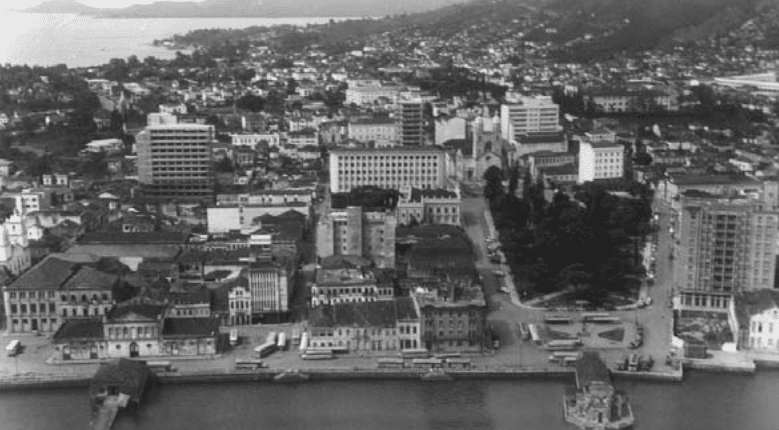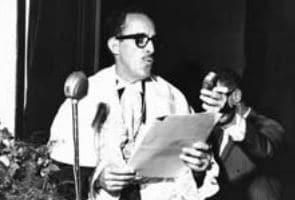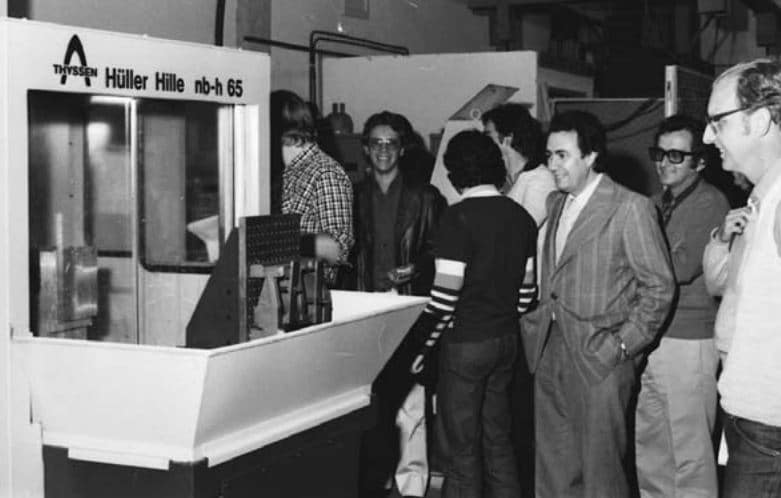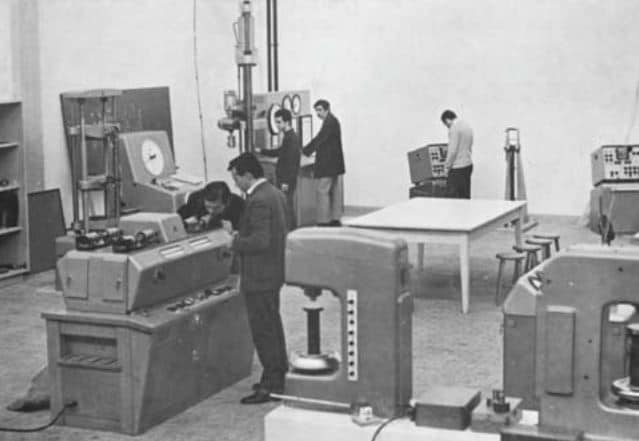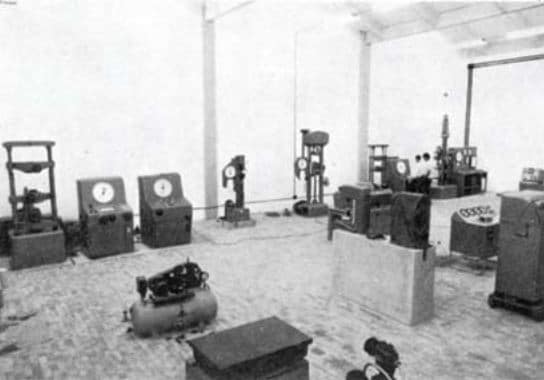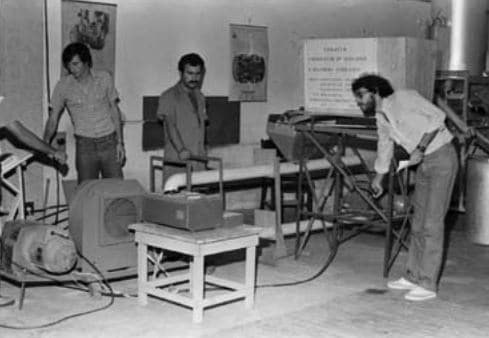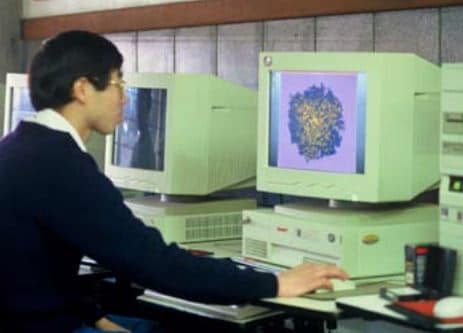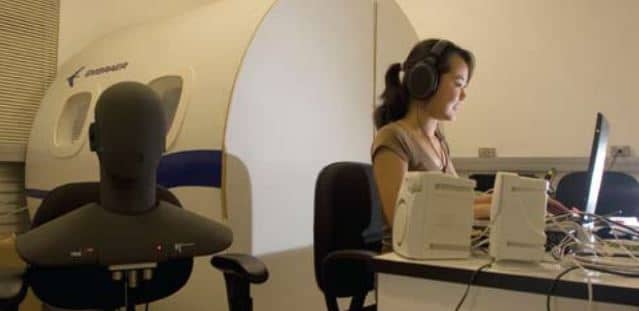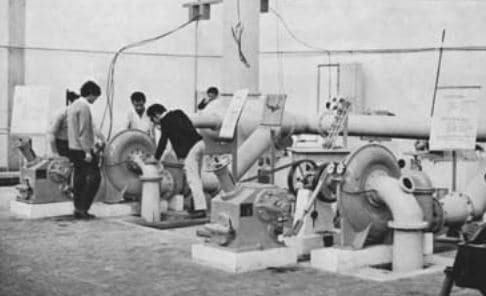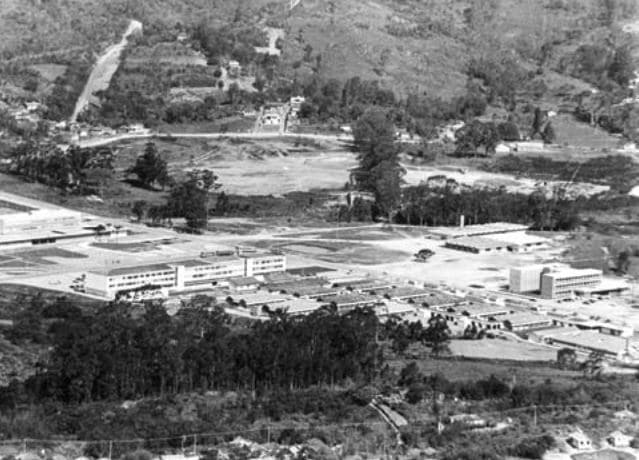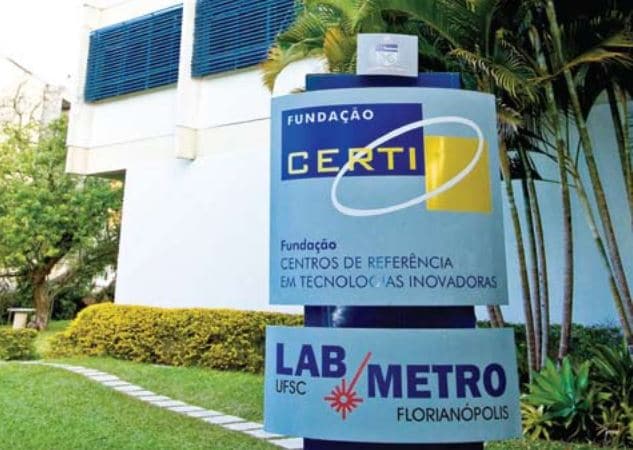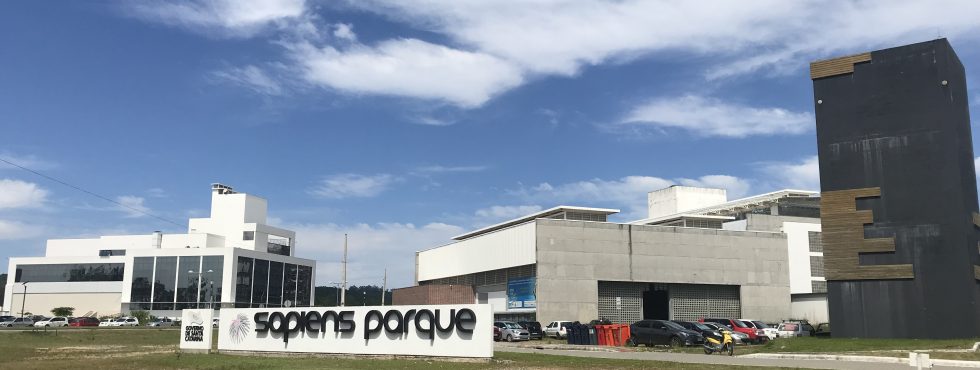History
1960 - THE BEGINNING
Currently Florianópolis is consolidated as technological hub and the Department of Mechanical Engineering has contributed to this achievement. The scenario has not been always that positive. In the `60s, the capital of Santa Catarina was isolated from industrial centers and, with only 80.000 inhabitants, it did not appear to be big enough to have an Engineering School.
This was not what thought Professor João David Ferreira Lima, the first Dean of the Federal University of Santa Catarina. With the approval of Jurandyr Lodi, then Director of Higher Education at the Ministry of Education and Culture (MEC), Prof. David Ferreira Lima created the course of Industrial Engineering (Mechanical, Chemical and Metallurgical). The three modalities, according to Lodi, would be strategic to the developmentalist policy of the Juscelino Kubitscheck government. Thus was born the School of Industrial Engineering (EEI), future Technological Center of UFSC.
1962 - FIRST CLASS
On May 2, 1962, 28 students began the Mechanical Engineering course. In the beginning, they had lessons in the classrooms of the Law Faculty and of a traditional school called Colégio Catarinense. In some practical classes, they used laboratories and facilities of the Industrial School of Florianópolis (currently IFSC).
Four years later, the first group of Mechanical Engineers graduated, on November 19, 1966. That same year, the pavilion of Mechanical Engineering was inaugurated on campus and its first equipments arrived (they costed around US $ 1 million).
The following year, the School of Industrial Engineering had about 100 students, and a mandatory internship was introduced in its curriculum – so the first steps in the relationship with industry were taken.
1968 - TECHNOLOGICAL CENTER
Due to the University Reform in 1968, which established Higher Education operating standards, the School of Industrial Engineering ceased to exist with this name. Actually it was replaced by the Technological Center, formed by five departments, among them the Mechanical Engineering Department.
The administrative structure proposed by the Reform also created a number of positions, including the Department Head, first held in 1971 by Professor Honorato Tomelin.
Over the years, highly-qualified teachers have attracted more students. In the 1977 entrance exam, the number of vacancies offered in the undergraduate course in Mechanical Engineering increased from 70 to 100.
1969 - GRADUATE STUDIES
The Graduate Course in Mechanical Engineering was implemented in March 1969, inaugurating the first master’s degree from the Federal University of State of Santa Catarina.
The first class of master’s students was the result of a modest selection, which included nominations from other schools in the southern region and, for the most part, alumni of UFSC Mechanical Engineering course.
1980 - EXPANSION
The arrival of new equipment and the expansion of the teaching staff (the Department already had almost 60 Professors in the late 1970s) contributed to the creation and consolidation of some laboratories, such as the Welding Laboratory (Labsolda) and the Vibration and Acoustics Laboratory (LVA).
An important factor to the constant improvement of the laboratories was their approach with the industrial sector. In 1983, a partnership between LVA and Embraco helped expand the laboratory by acquiring various equipment. In the following decade, a cooperative project began a solid partnership with Embraer, involving human resources, research and development in the area of jet aircraft noise and vibration.
Among other projects developed by the LVA, we can also highlight the studies for prediction of noise levels in oil rigs, made in partnership with Petrobras.
1980 - DOCTORATE
The Department of Mechanical Engineering launched the first doctoral program at UFSC, in 1980. With a prominent academic production, its research generated articles published in Brazil and abroad – at that time, a practice still uncommon among university professors.
1982 - APPROACHING THE INDUSTRY
In addition to the agreements signed with development agencies such as FINEP, CNPq, Capes and CNEN, one of the ways found to enable the expansion of the Department was the development of cooperative projects with companies, a model adopted since the creation of the Industrial Engineering School, in 1962, which later became a reference to other departments of the Technology Center and to UFSC as a whole.
If in the early years it was necessary for teachers and students to knock on company doors, in the early 1980s this situation would be reversed.
One of the most notorious cases of this university-business approach began in 1982, when the Brazilian Compressor Company (Embraco), with headquarters in Joinville (SC), found in the Department the help it needed to achieve one of its strategic goals: technological independence.
At that time, some of the Department’s laboratories and research groups had already become a reference in Brazil. One was the Research and Training Group on Numerical Command and Industrial Automation (Grucon). With the support of German teachers, the Brazilian Society of Numerical Command (Sobracon) was founded, which would contribute to intensify the relationship between UFSC and technology companies.
With funds from extension activities, the Department was able to purchase research materiais, ensure equipment maintenance, finance internship supervision, and provide scholarships in order to involve some 200 undergraduate students in research activities.
1984 - CERTI
Leaders of Eletrosul (a public company under the Ministry of Mines and Energy) met with professors from UFSC Mechanical, Electrical and Production Engineering departments to set up a Technology Center in Florianópolis, which would have the participation of both institutions, as well as other companies in the area, such as WEG, Inplac, Multibrás, Embraco, Hering, Volkswagen, Mercedes-Benzs, Light Metal and Pirelli.
The project came out of paper in 1984, giving rise to the Regional Center for Computing Technology (in portuguese, Certi). Thus was born a private non-profit institution, the result of a partnership between UFSC, the state government (through the Special Secretariat of Informatics) and other public and private entities. Certi was initially installed inside Labmetro, in the pavilion of the Department of Mechanical Engineering.
A little more than two decades after its foundation, the success achieved by the institution exceeded the expectations of its founders, who did not foresee Certi’s performance in areas in which it became a reference, such as business incubation and creation of technology parks. In research and development, Certi excels in the fields of metrology, measurement automation, quality systems and, most recently, business management. The foundation was also responsible for important projects related to digital convergence, such as the Brazilian electronic voting machine, bank automation terminals and public internet access terminals.
1991 - SPACE MISSION
In 1991, systematic studies about heat pipes and two-phase thermosiphons began at UFSC, in partnership with the University of Stuttgart (Germany). One year after the activities, the Solar Energy Laboratory (Labsolar) received support from the Brazilian Space Agency, which allowed it to implement the entire research infrastructure in the area of heat pipe for space application.
1994/1999 - NEW COURSES
Investments and the integration of professors from various courses into projects conducted by the Materials Laboratory (LabMat) have contributed to the creation of the Graduate Program in Materials Science and Engineering (1994) and the Undergraduate Course in Materials Engineering. Materials Engineering (1999), linked to the Department of Mechanical Engineering.
In 1998, CPGEM was renamed Graduate Program in Mechanical Engineering (POSMEC).
In 1999, Capes approved a professional master’s project, a teaching modality offered by POSMEC to large companies. Since then, three professional master courses have been offered to employees of companies such as Fiat, Braskem, Petrobras and WEG.
At UFSC, in 1999, the students of the Mechanical Engineering Course performed for the first time the National Course Exam, applied by MEC, with the objective of evaluating the results of the teaching-learning process. The Course received the maximum concept (5), confirming its position among the best in Brazil.
2000... - EXPANDED AREAS OF EXPERTISE
Since 2000, Laship (Laboratory of Hydraulic and Pneumatic Systems) has been involved in research for the generation of electricity, in partnership with the company Reivax, from Florianópolis, which contributed to attract other partners.
At the beginning of the 21st century, the challenges in the field of energy became even greater. Between 2003 and 2006, the R&D program of Celesc (Santa Catarina Power Company) and the National Electric Energy Agency (Aneel) provided support to Labsolar to install a solar collector test bench. Thanks to this project, the only qualified bank for quasi-dynamic testing of solar collectors was implemented in South America.
In 2019, UFSC celebrated 50 years of graduate studies, which started with a master’s degree in Mechanical Engineering.
In 2020, Alumni EMC was officially registered, after its constitution in nov/ 2019.




